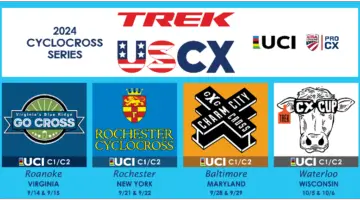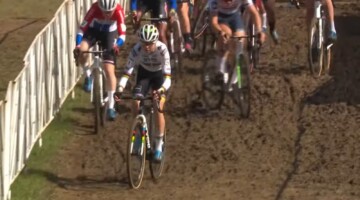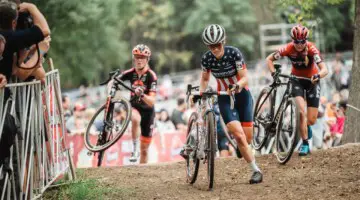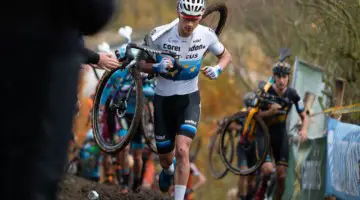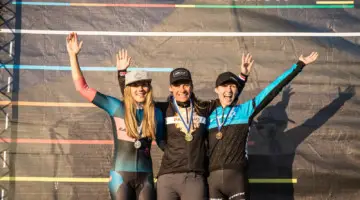by Caroline Nolan
Cycling is a sport of numbers. We track heart rates, power outputs, average speeds, kilojoules burned and calories consumed all in the name of performance. We use these metrics to measure our success, to quantify our progress.
But I am not a number.
We are ranked. Compared to each other based on the category of a race and the number of points we earn. We line up, with numbers pinned to our sleeves and backs that determine our starting position and predicted rankings.
But I am not a number.
We race for 50 minutes, lap cards indicating how many laps remain, with the winner ultimately being the one who rides the fastest average speed for the length of the race. And the rest of us, giving it our all, finishing our race within milliseconds, seconds or minutes behind the leader, all earning our spot on the result sheet.
But those numbers don’t define me.
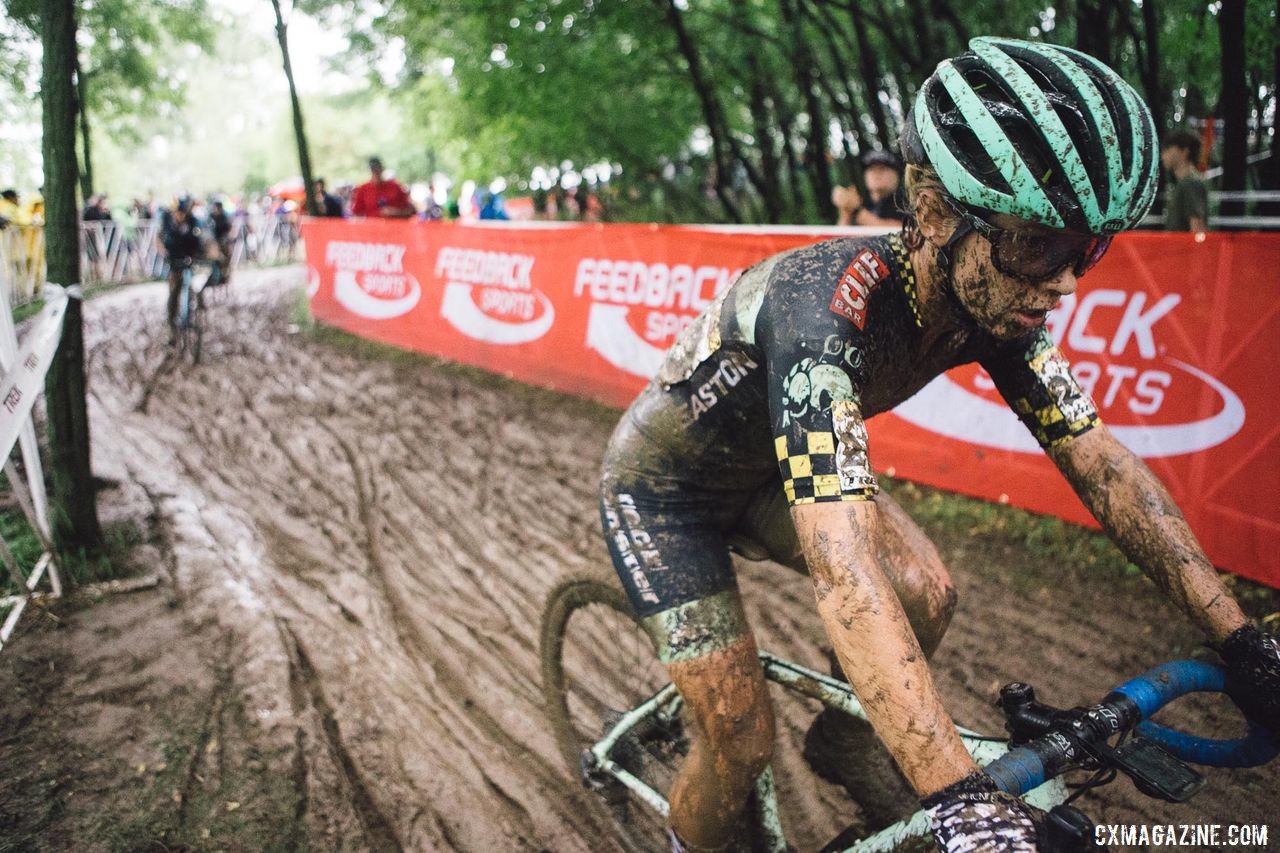
Navigating the Waterloo mud required focus for the full 48 minutes Nolan raced. Caroline Nolan World Cup Waterloo Rider Diary. © Balint Hamvas / Cyclephotos
Each athlete has a unique story. The numbers don’t tell the whole tale. They don’t show the effort, the passion, the dedication that goes into each journey. They don’t show the chaos or the emotion that comes with the best race ever or the worst race ever. The numbers can be fun when you’re on top of your game, but they can also be cruel when things aren’t going her way.
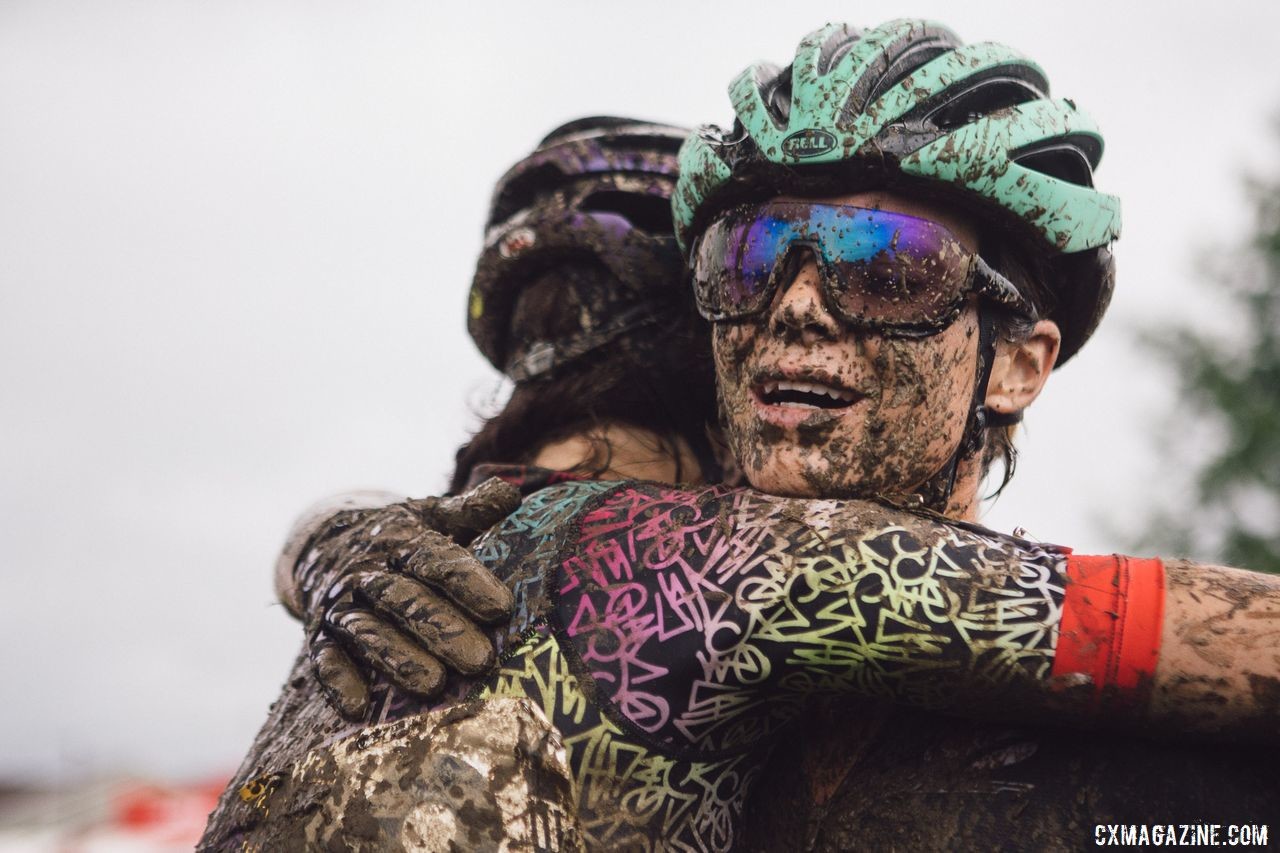
Riders were competitors on the course, but together in what they had gone through off. Caroline Nolan World Cup Waterloo Rider Diary. © Balint Hamvas / Cyclephotos
Here are my numbers for the Waterloo World Cup:
In 48 minutes and 3 seconds, I rode 3 times around a 3,700-meter course for a total of 8.5 kilometers. My average heart rate was 177 bpm with a max of 184 bpm. My average power was a whopping 117 watts. Compare this to Friday night’s C2 race where my average heart rate was 180 bpm and average power was 183 watts and one would think I am talking about different people.
But the numbers don’t represent the work. They don’t represent the steep, sticky, slippery run-ups or the technical peanut-butter mud off-cambers that I had to commit to running. They don’t represent the physical prowess and mental determination it took to stay upright on the slimy, rutted descents. Those numbers don’t factor in the 2 inches of rain that Waterloo received between 5 p.m. Saturday night and 12 p.m. Sunday afternoon.
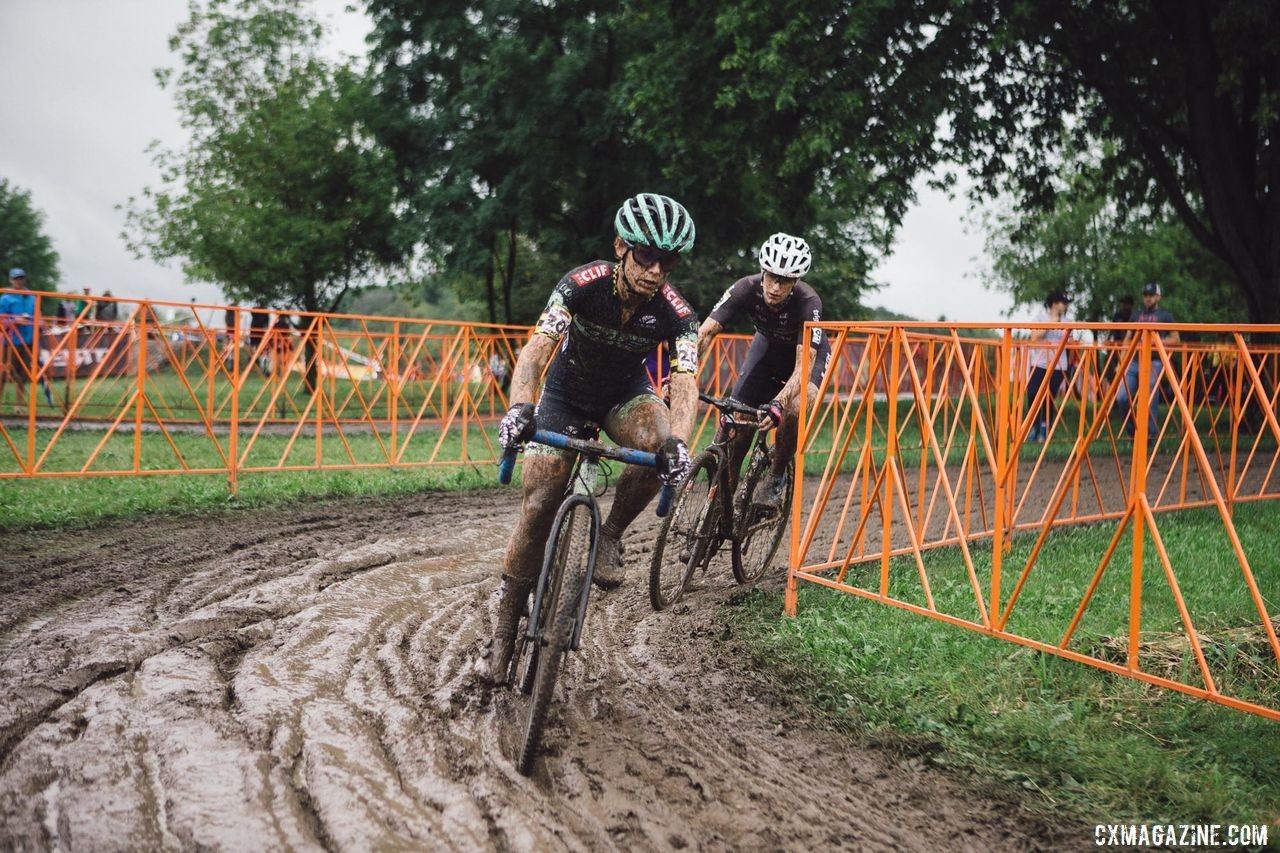
Caroline Nolan looks for traction in the slimy mud. Caroline Nolan World Cup Waterloo Rider Diary. © Balint Hamvas / Cyclephotos
I finished 26th on the day, 1 second ahead of 27th, 3 seconds out of 25th, 11 seconds out of 24th and over 6 minutes behind one of my heroes, Katerina Nash. When I quantitatively look at that time difference—the fact that Katerina crossed the line when I still had half a lap to go—I question my performance. I can play the “coulda, shoulda, woulda” game but everyone ahead of and behind me plays that game (well, except maybe Katerina).
The numbers can be cold and clinical. But I’m learning to look past the numbers and focus on personal successes.
I didn’t let the deteriorating conditions discourage me or my less than ideal start position squash my positive spirit. I didn’t let my mistakes on the first lap or the fact that I still am learning to be aggressive keep me from fighting until the finish. I made sure that when I slipped out on the last lap, I chased back to catch the rider in front of me, and I won a sprint to the finish line because I didn’t want to quit.
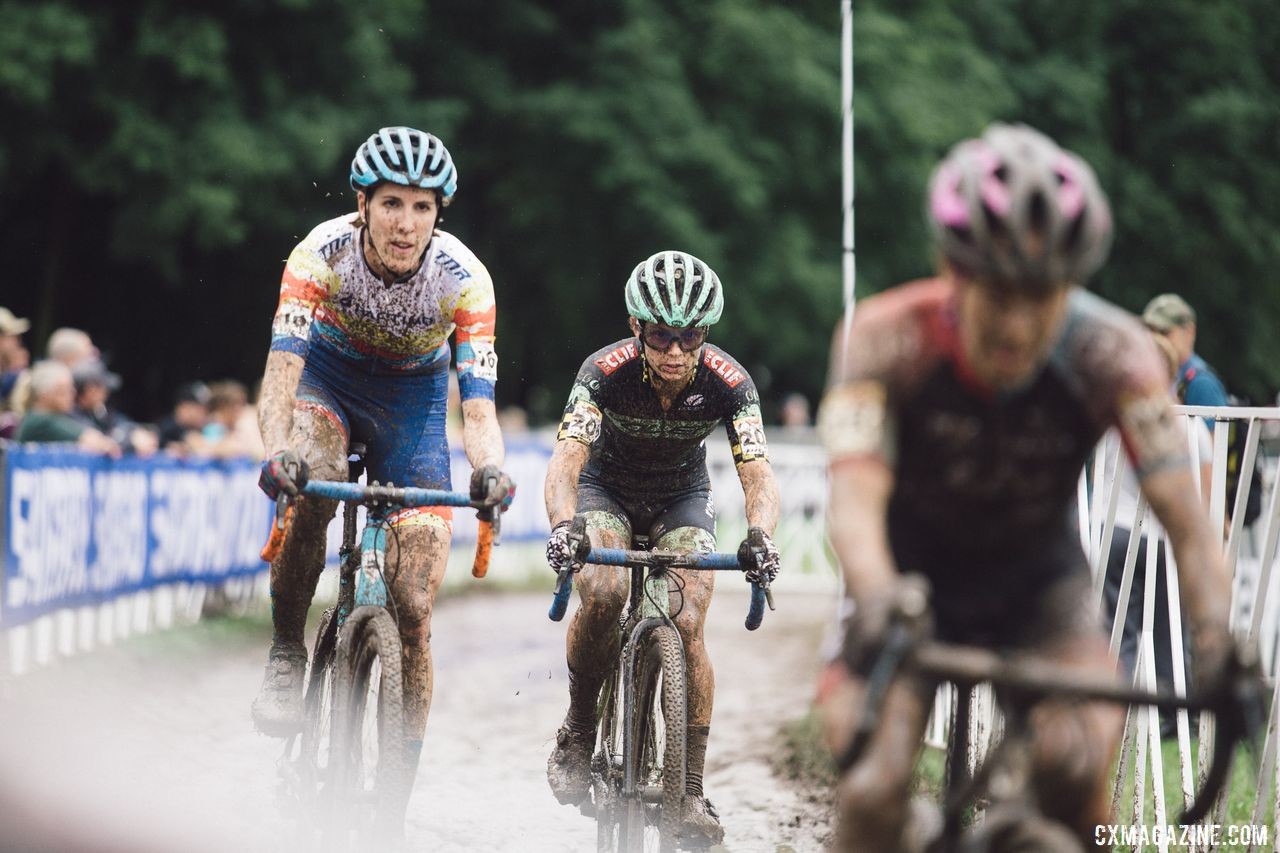
Nolan battled for spots from start to finish. Caroline Nolan World Cup Waterloo Rider Diary. © Balint Hamvas / Cyclephotos
Numbers have their place in cycling—they keep us striving for more—but they are not the end-all-be-all. They are a part of the story, useful for analysis and self-reflection. But they are, ultimately, just numbers.
At the end of the day, it doesn’t matter if you are in first or last; every rider is out here pursuing her own victory. The season is still young and there are a lot more races (and numbers) to chase.
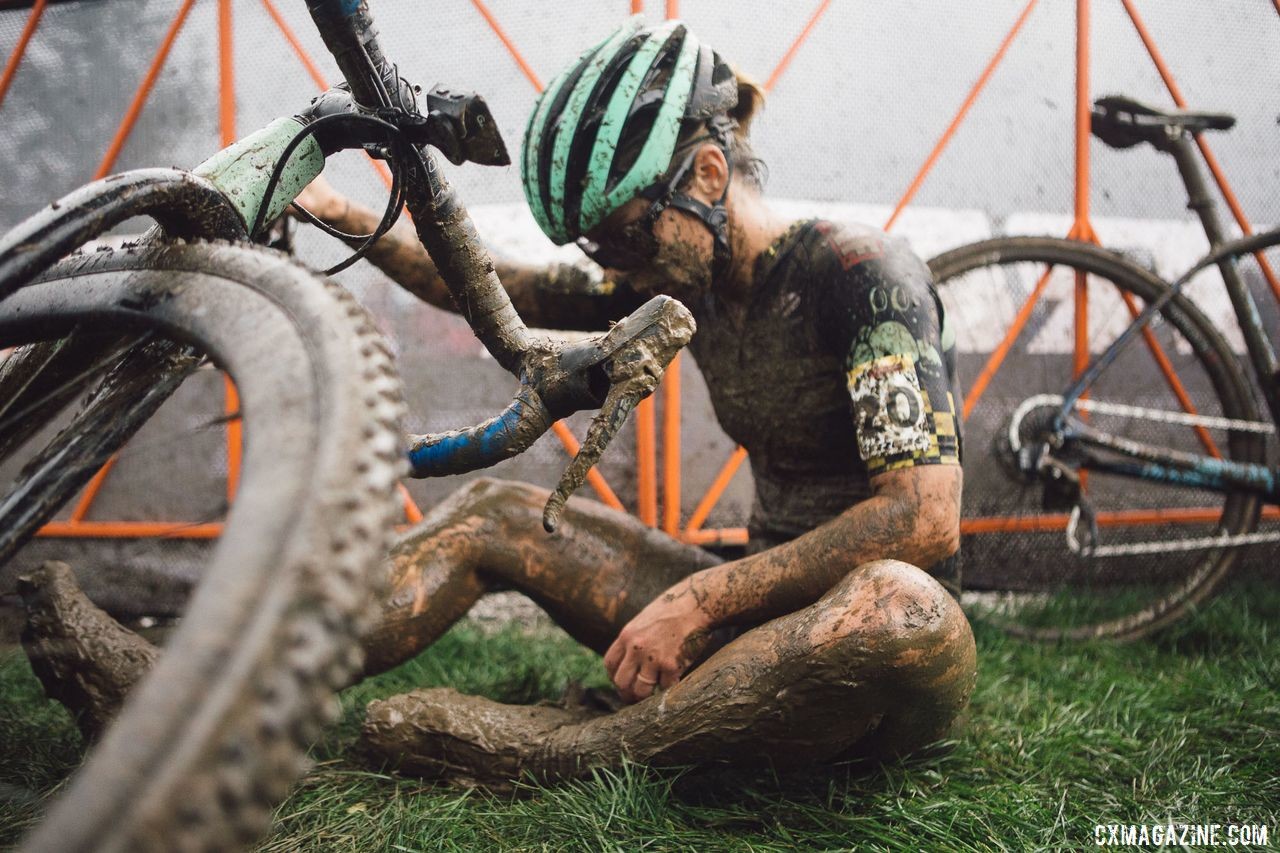
Caroline Nolan takes a moment after finishing the challenging World Cup Waterloo. Caroline Nolan World Cup Waterloo Rider Diary. © Balint Hamvas / Cyclephotos
The lessons I’ve learned from the North American World Cups will fuel my fire heading into the next block of racing at Charm City CX and DCCX. For now, I’ll head back to Reno focus on strengthening my weaknesses and fine-tuning my fitness so that for my next race, the numbers will tell the story I want them to tell.










